Learning by Milling
Emma Lambaa-Bonde, Elias Hintermayr, Jamie van Duuren, Tonda Budszus
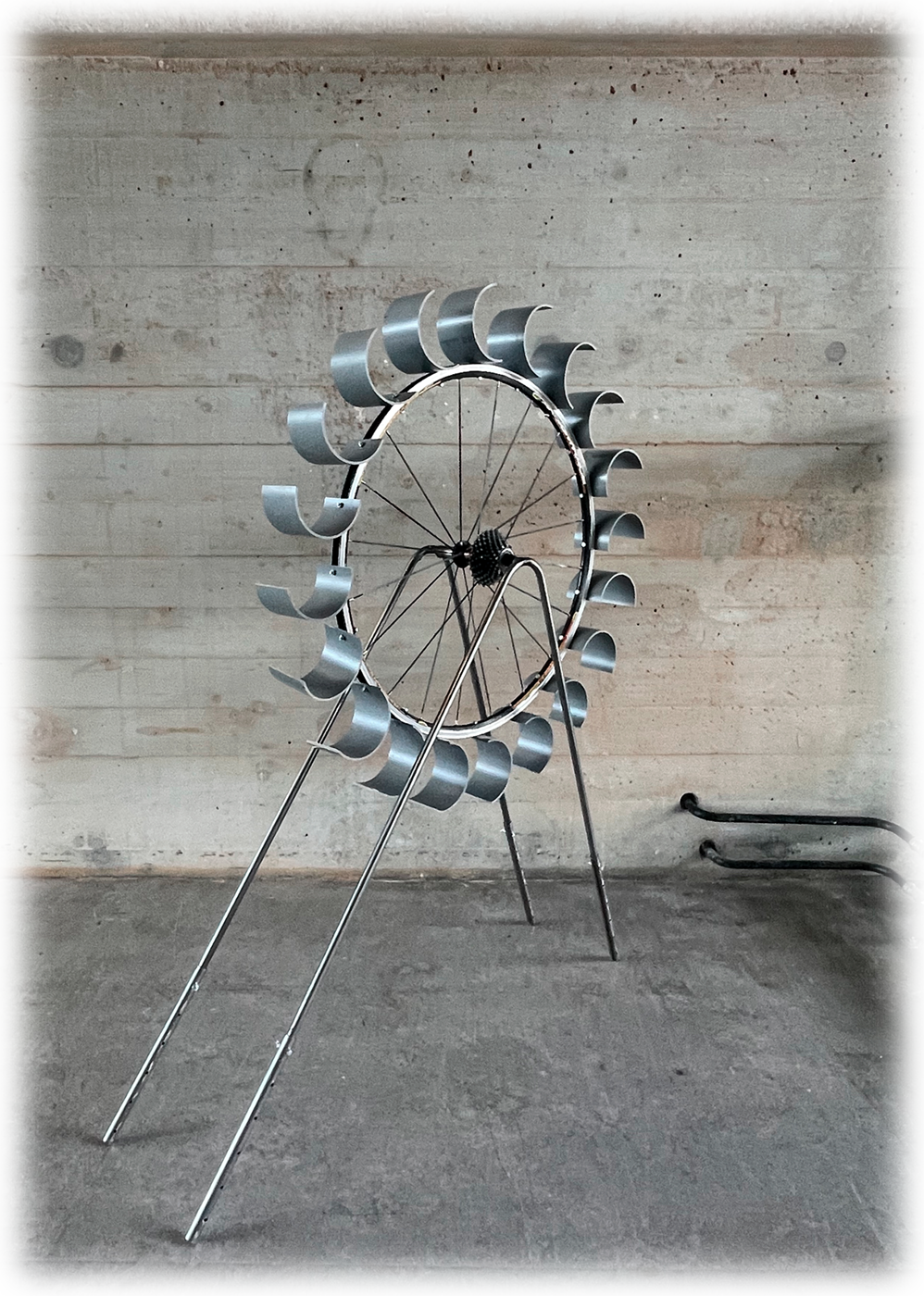
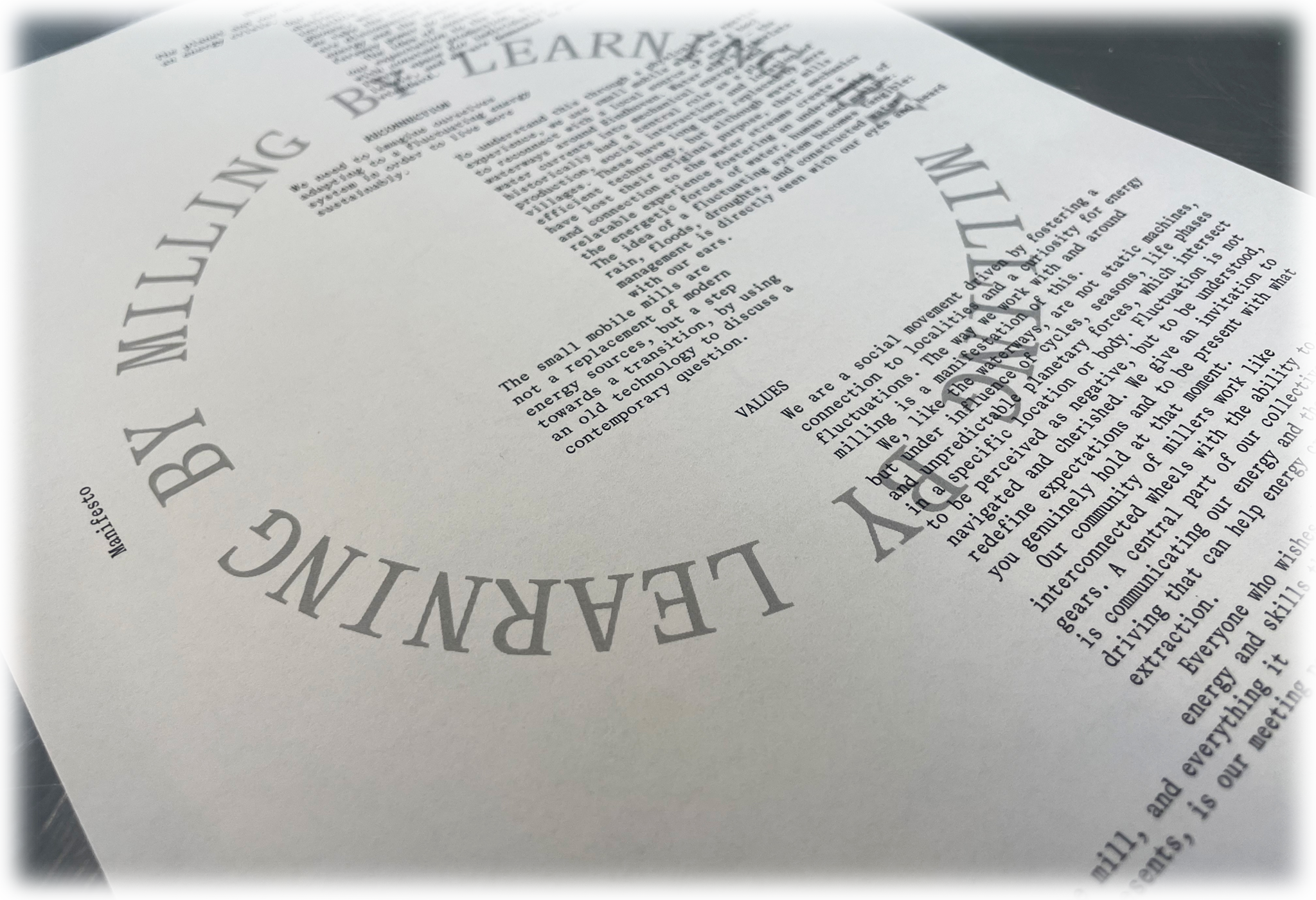
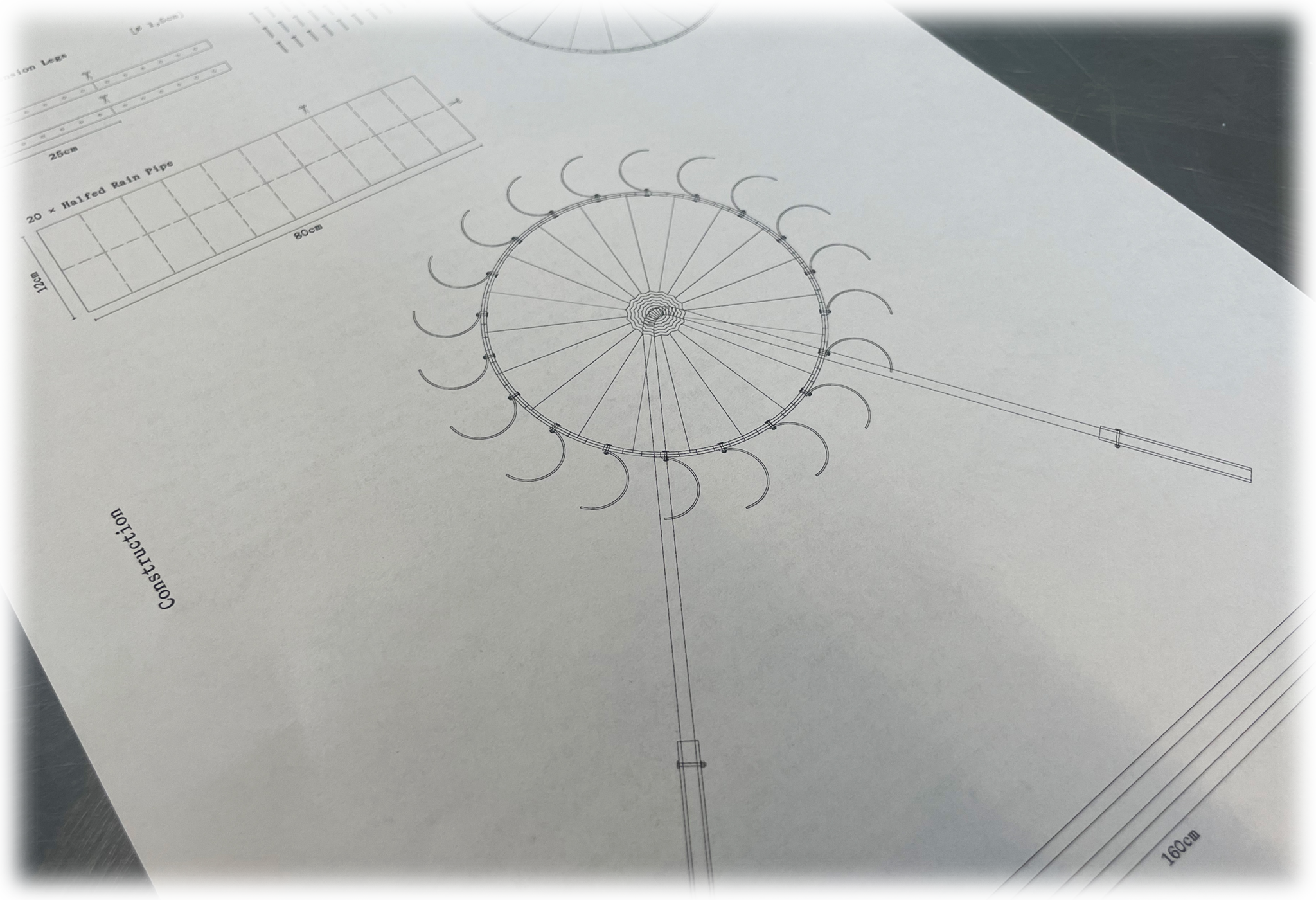
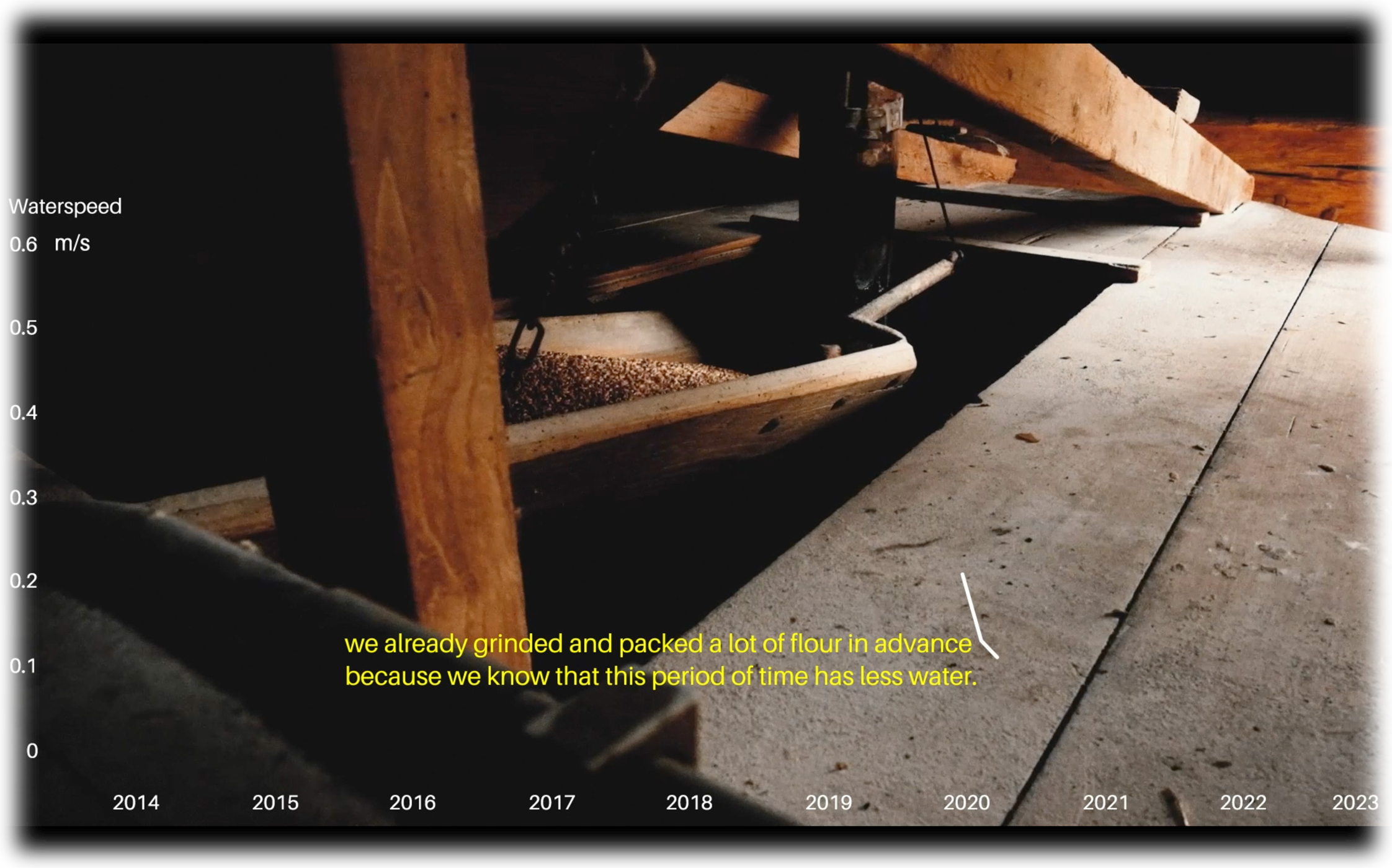
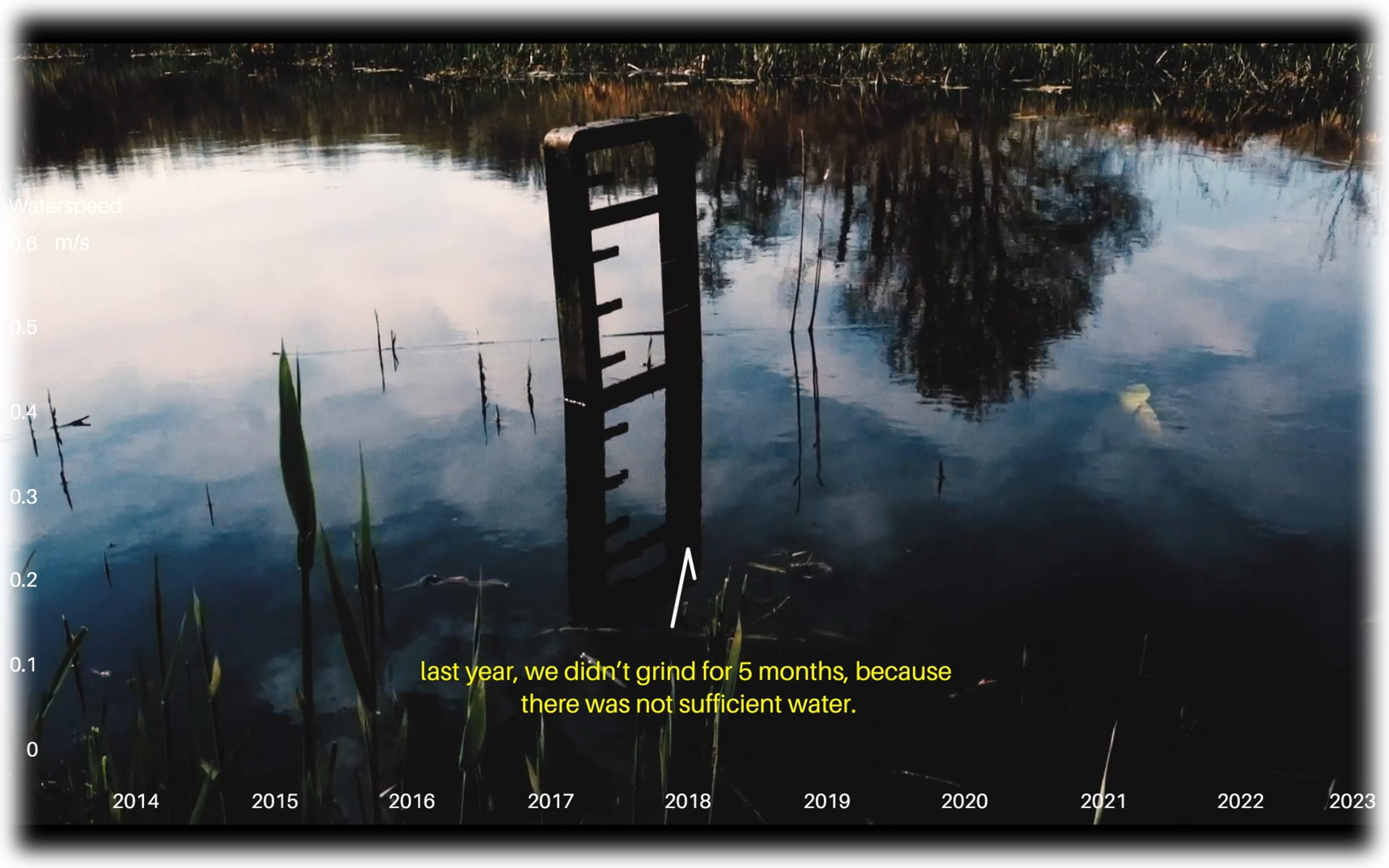
The planet and our bodies are amid an energy crisis. Our relationship to the concept of “energy” is abstract. For many of us consuming, energy is invisible and seemingly endless. While charging our phones or working on our laptops, we take the constant flow of energy for granted. We are disconnected from its sources and from the complex infrastructures that bring faraway power into our homes and offices. The idea of energy as constant has also influenced our expectations for the human body – a labourer, producing incessantly.


In order to live more sustainably, we need to adapt to fluctuating energy systems. To understand what this shift could look like first-hand, we physically engaged with a local energy source – the waterways around Eindhoven – using small-scale mobile watermills. These mills convert water currents into mechanical energy. Historically, they played important roles in terms of production and social interaction, and influenced the location of villages. They’ve long been replaced by more efficient technologies but their mechanical systems and their relationship with water streams can still lead to relatable experiences that foster an understanding of fluctuating energy forces. Thus, our mobile mills are not replacements for modern energy sources but a step forward in a much larger transition – using an old technology to address a contemporary question.

We, like waterways, are not static machines. We are under the influence of different intersecting cycles, seasons, life phases, and unpredictable planetary forces – we manifest them in the way we worth with and around the mills. Fluctuation should not be perceived as negative but should, instead, be understood, navigated, and cherished.